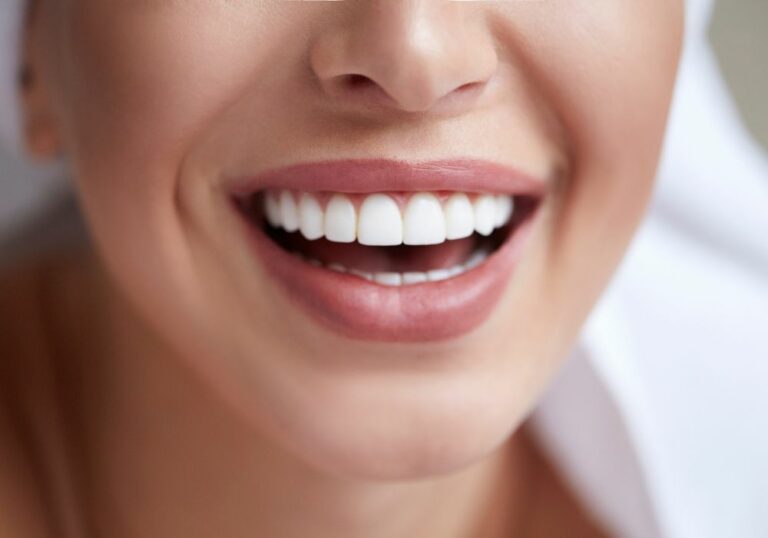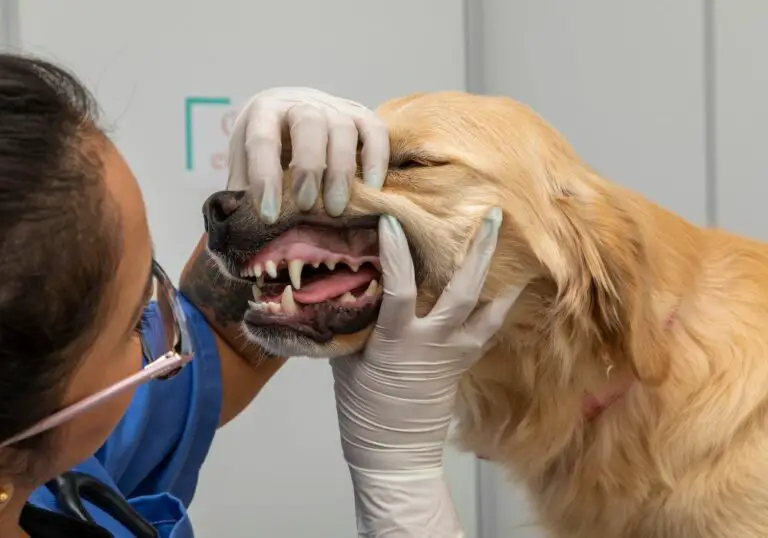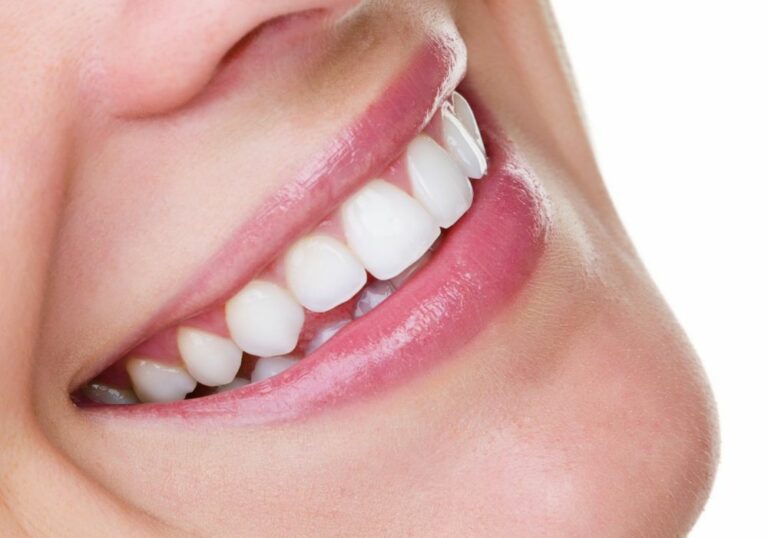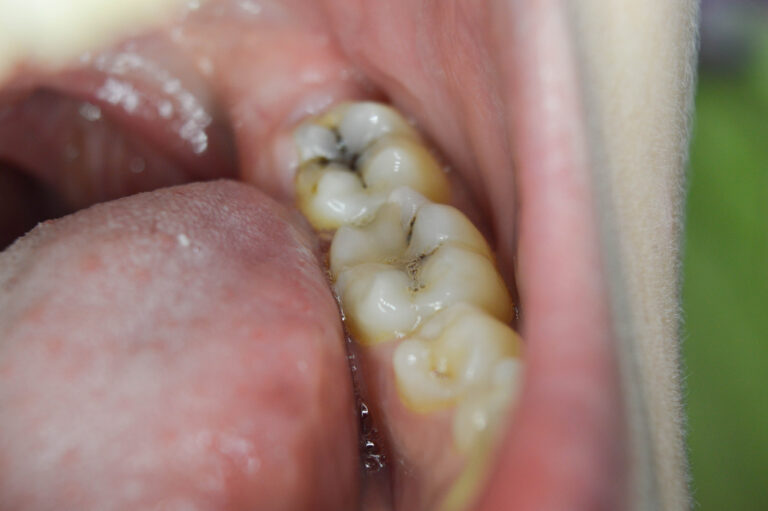If you’re a parent or caregiver, you may be wondering when your child’s teeth will fall out. It’s important to know when this will happen so that you can help your child take good care of their teeth and prepare them for the arrival of their permanent teeth. Luckily, there are charts that can help you keep track of when your child’s baby teeth will fall out.
Baby teeth, also known as primary teeth, typically start to fall out around the age of 6. However, the exact timing can vary from child to child. That’s why it’s helpful to use a chart that shows the typical timeline for when baby teeth fall out. These charts can help you determine when your child’s teeth are likely to fall out and when their permanent teeth will start to come in.
Using a chart to track your child’s teeth can also help you identify any potential issues. For example, if your child’s baby teeth aren’t falling out on schedule, it may be a sign that their permanent teeth are coming in crooked or crowded. By keeping track of your child’s teeth with a chart, you can catch these issues early and work with your dentist to address them before they become bigger problems.
Understanding Baby Teeth
Baby teeth, also known as primary teeth or deciduous teeth, are the first set of teeth that your child will have. These teeth are important for your child’s speech development, eating habits, and the development of their permanent teeth. In this section, we will discuss the growth timeline and falling out schedule of baby teeth.
Growth Timeline
The growth timeline of baby teeth can vary from child to child, but there is a general timeline that most children follow. The first baby tooth usually appears around six months of age, and by the age of three, most children have a full set of 20 baby teeth.
Below is a table that shows the general timeline for the growth of baby teeth:
| Age | Teeth |
|---|---|
| 6-10 months | Bottom front teeth (lower central incisors) |
| 8-12 months | Top front teeth (upper central incisors) |
| 9-13 months | Top lateral incisors |
| 10-16 months | Bottom lateral incisors |
| 13-19 months | First molars |
| 16-23 months | Canines |
| 23-33 months | Second molars |
It is important to note that the timeline above is just a general guide, and your child’s teeth may come in earlier or later than the timeline suggests.
Falling Out Schedule
Just like the growth timeline, the falling out schedule of baby teeth can also vary from child to child. Generally, baby teeth begin to fall out around the age of six, and by the age of 12 or 13, most children have a full set of permanent teeth.
Below is a table that shows the general timeline for the falling out of baby teeth:
| Age | Teeth |
|---|---|
| 6-7 years | Bottom front teeth (lower central incisors) |
| 6-8 years | Top front teeth (upper central incisors) |
| 7-8 years | Top lateral incisors |
| 7-9 years | Bottom lateral incisors |
| 9-11 years | First molars |
| 10-12 years | Canines |
| 10-12 years | Second molars |
It is important to note that the timeline above is just a general guide, and your child’s teeth may fall out earlier or later than the timeline suggests.
In conclusion, understanding the growth timeline and falling out schedule of baby teeth can help you prepare for your child’s dental development. Remember to take your child to the dentist regularly to ensure that their teeth are healthy and developing properly.
Permanent Teeth Timeline
Once all of your baby teeth have fallen out, you will have a full set of permanent teeth. These teeth are meant to last a lifetime, so it’s important to take good care of them. Here is a general timeline of when your permanent teeth will come in:
| Tooth Type | Eruption Time |
|---|---|
| Central Incisors | 6-8 years old |
| Lateral Incisors | 7-9 years old |
| Canines | 9-12 years old |
| First Premolars | 10-12 years old |
| Second Premolars | 11-13 years old |
| First Molars | 6-7 years old |
| Second Molars | 12-13 years old |
| Third Molars (Wisdom Teeth) | 17-25 years old |
As you can see, your permanent teeth will come in over a period of many years. It’s important to keep up with regular dental checkups to make sure that your teeth are coming in properly and to catch any problems early on.
It’s also important to keep up with good oral hygiene habits, such as brushing twice a day and flossing daily. This will help keep your teeth healthy and prevent problems like cavities and gum disease.
If you have any concerns about your teeth or if you notice any problems, be sure to talk to your dentist. They can help you come up with a plan to keep your teeth healthy and strong for years to come.
Factors Affecting Teeth Falling Out
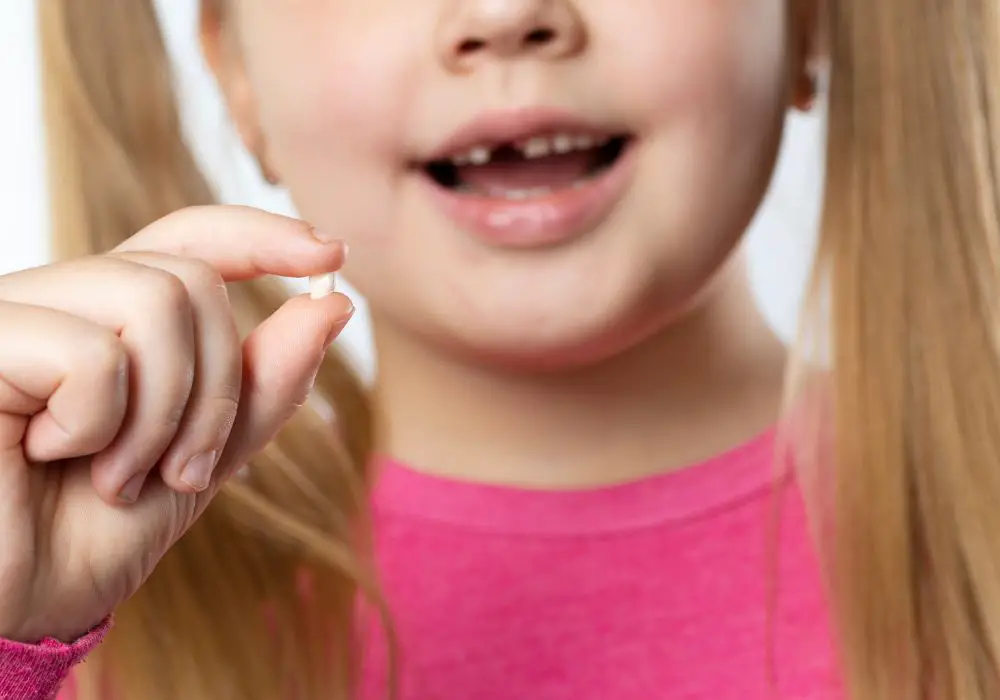
There are several factors that can affect when your child’s baby teeth fall out. Here are a few things to keep in mind:
Genetics
Genetics play a significant role in determining when your child’s baby teeth will fall out. If you or your partner had late or early tooth loss, your child may experience a similar pattern.
Gender
Girls tend to lose their baby teeth earlier than boys. This is because girls’ teeth tend to develop faster than boys’ teeth.
Nutrition
Nutrition also plays a role in tooth development and loss. A diet that is high in sugar and low in essential vitamins and minerals can lead to tooth decay and gum disease, which can cause teeth to fall out prematurely.
Oral Hygiene
Good oral hygiene is essential for maintaining healthy teeth and gums. Poor oral hygiene can lead to gum disease, which is a leading cause of tooth loss in adults.
Trauma
Trauma to the mouth, such as a fall or sports injury, can cause baby teeth to fall out prematurely. It’s important to protect your child’s teeth during physical activities by using mouthguards and other protective gear.
Developmental Delays
Children with developmental delays may experience delayed tooth eruption and loss. If you have concerns about your child’s tooth development, talk to your pediatrician or dentist.
By keeping these factors in mind, you can help ensure that your child’s teeth develop and fall out at the appropriate times.
Common Concerns and Solutions
As your child’s teeth start falling out, you may have some common concerns. Here are some of those concerns and their solutions:
Concern: Your child is experiencing pain while losing teeth.
Solution: Losing teeth can be uncomfortable, but it shouldn’t be painful. If your child is experiencing pain, you can give them over-the-counter pain medication like acetaminophen or ibuprofen. You can also apply a cold compress to the affected area to reduce swelling and pain.
Concern: Your child’s teeth are not falling out in the right order.
Solution: Children’s teeth usually fall out in a specific order. However, sometimes they may fall out in a different order, which can be concerning. If your child’s teeth are not falling out in the right order, don’t worry. It’s not uncommon, and it usually doesn’t cause any problems. If you’re concerned, you can always talk to your child’s dentist.
Concern: Your child’s permanent teeth are coming in before their baby teeth have fallen out.
Solution: It’s not uncommon for permanent teeth to start coming in before baby teeth have fallen out. However, it can cause problems if the permanent teeth start pushing against the baby teeth, which can cause pain and discomfort. If this happens, you should take your child to the dentist, who can determine if any action needs to be taken.
Concern: Your child is losing teeth too early or too late.
Solution: Children usually start losing teeth around the age of six and continue to lose teeth until they’re around 12 years old. If your child is losing teeth too early or too late, it could be a sign of a problem. You should take your child to the dentist, who can determine if any action needs to be taken.
Concern: Your child is losing too many teeth.
Solution: Losing teeth is a natural part of growing up, but if your child is losing too many teeth, it could be a sign of a problem. You should take your child to the dentist, who can determine if any action needs to be taken.
By knowing what to expect and how to handle common concerns, you can help ensure your child’s dental health is in good shape during this important time.
Maintaining Dental Health During Transition
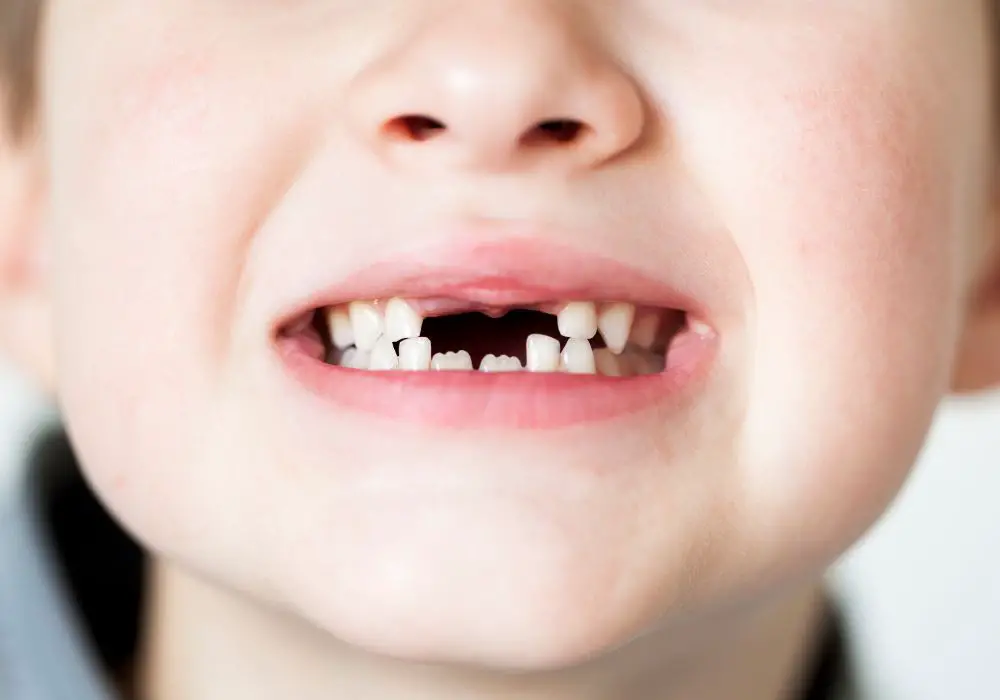
As your child’s baby teeth start to fall out, it’s important to maintain good dental health to ensure the healthy development of their adult teeth. Here are some tips to keep in mind during this transition:
- Brush twice a day: Encourage your child to brush their teeth twice a day with fluoride toothpaste. Make sure they brush for at least two minutes each time.
- Floss daily: As soon as your child’s teeth start to touch, it’s time to start flossing. Help them floss between their teeth once a day to remove any food particles and plaque.
- Visit the dentist regularly: Regular dental check-ups are important to catch any potential issues early on. Your dentist can also provide guidance on how to care for your child’s teeth during this transition.
- Use a teeth eruption chart: Teeth eruption charts can be useful tools to track your child’s dental development. Mark the date when your child’s first tooth emerged and use it as a reference point for when the other teeth should appear.
- Encourage healthy eating habits: A balanced diet that’s low in sugar can help prevent cavities and promote healthy teeth and gums.
By following these simple steps, you can help ensure that your child’s teeth stay healthy and strong during this important transition.
Frequently Asked Questions
What is the typical order of baby teeth falling out?
Most people lose their baby teeth in the order that they erupted, and the lower central incisors are the first teeth to fall out. After that, the upper central incisors are next, followed by the lateral incisors, first molars, canines, and second molars.
When do permanent teeth usually start to come in?
Permanent teeth usually start to come in around the age of 6 or 7, and the first permanent teeth to erupt are typically the first molars. These teeth come in behind the baby teeth, and they do not replace any baby teeth.
Is it normal for baby teeth to fall out early?
Baby teeth falling out early can be a cause for concern, and it is important to talk to your dentist if you notice this happening. However, in some cases, it is normal for baby teeth to fall out early, especially if the child’s teeth erupted early.
What is the average age for second molars to come in?
The average age for second molars to come in is around 12 years old. These teeth come in behind the first molars and can cause some discomfort and pain while erupting.
Can baby teeth fall out before the permanent teeth come in?
Baby teeth falling out before the permanent teeth come in is not common, but it can happen. If this occurs, it is important to talk to your dentist to ensure that there are no underlying issues.
At what age do most children lose their first tooth?
Most children lose their first tooth around the age of 6, but this can vary from child to child. It is important to encourage good oral hygiene habits from a young age to ensure that your child’s teeth are healthy and strong.


